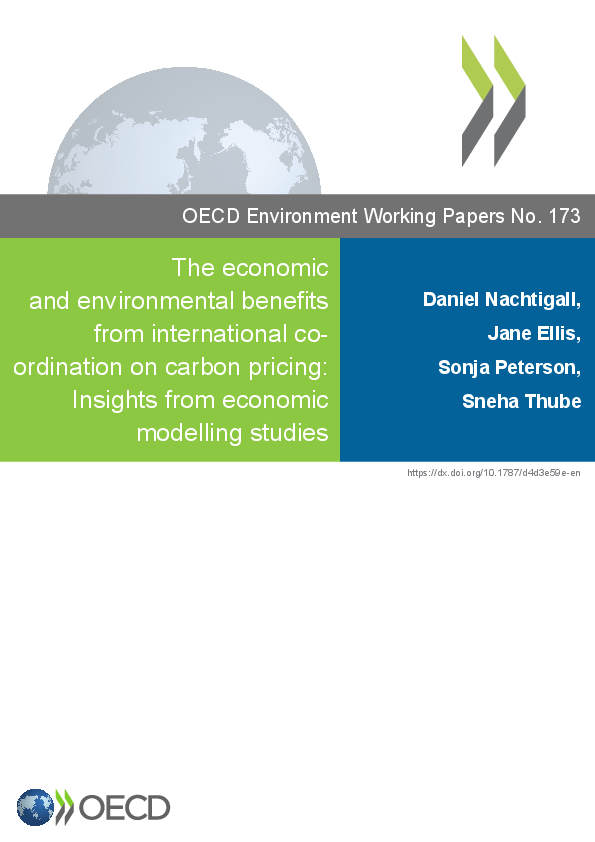Working Paper
The economic and environmental benefits from international co-ordination on carbon pricing: Insights from economic modelling studies
Authors
Publication Date
DOI
JEL Classification
Key Words
Related Topics
Natural Resources
Climate
This paper assesses quantitative estimates based on economic modelling studies of the economic and environmental benefits from different forms of international co-ordination on carbon pricing. Forms of international co-ordination include: harmonising carbon prices (e.g. through linking carbon markets), extending the coverage of pricing schemes, phasing out fossil fuel subsidies, developing international sectoral agreements, and establishing co-ordination mechanisms to mitigate carbon leakage. All forms of international co-operation on carbon pricing can deliver benefits, both economic (e.g. lower mitigation costs) and/or environmental (e.g. reducing GHG emissions and carbon leakage). Benefits tend to be higher with broader participation of countries, broader coverage of emissions and sectors and more ambitious policy goals. Most, but not all, countries gain economic benefits from international cooperation, and these benefits vary significantly across countries and regions. Complementary measures outside co-operation on carbon pricing (e.g. technology transfers) could ensure that co-operation provides economic benefits for all countries.





